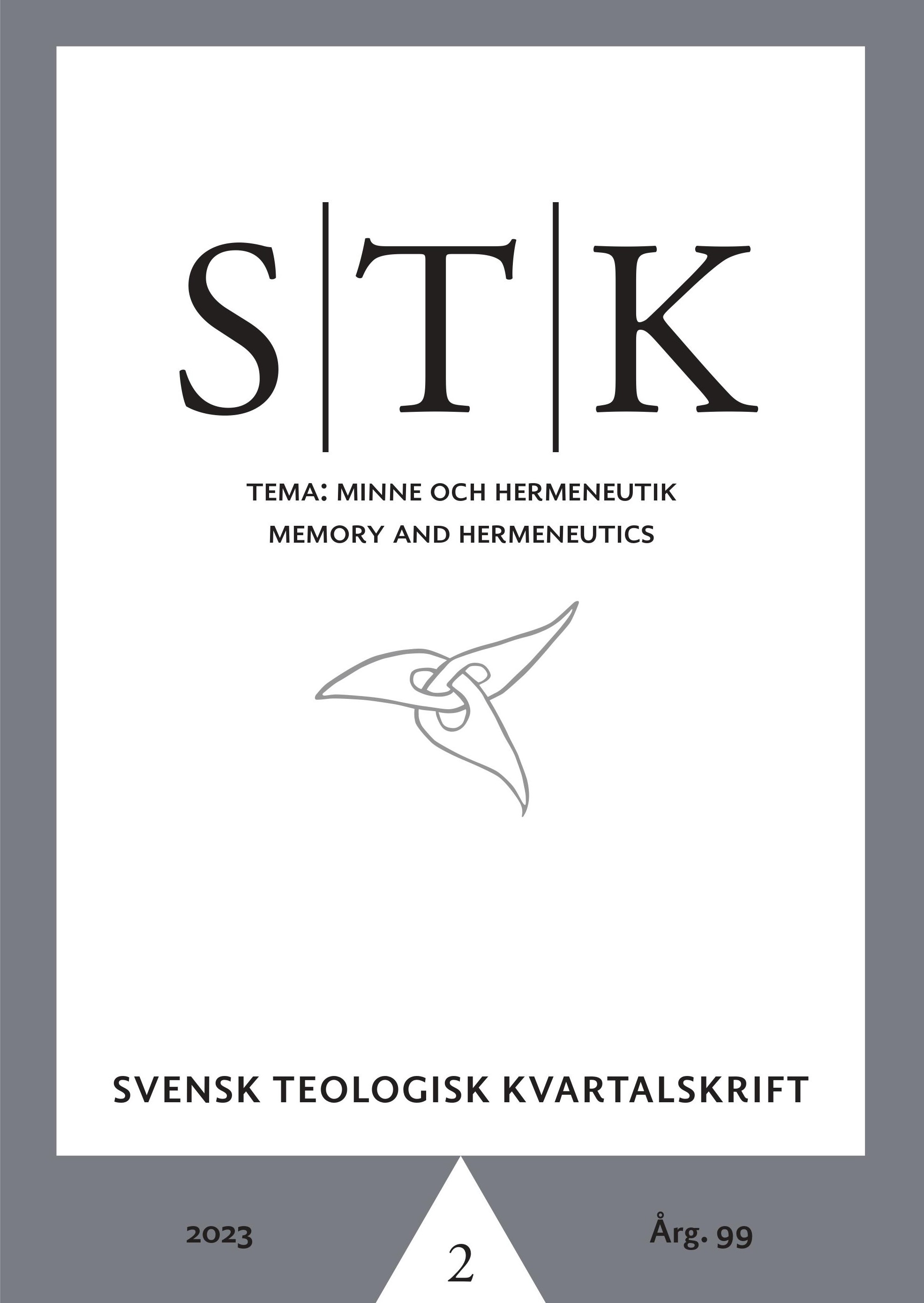Facing Violence and War
How Mark Memorizes Contemporary History
DOI:
https://doi.org/10.51619/stk.v99i2.25193Abstract
Mark 13 marks the transition from Jesus' public ministry in Galilee and Jerusalem to the passion events (Mark 14–15). Jesus' eschatological discourse is at the juncture of the Gospel narrative and is thus fundamental to the Markan interpretation of time and history. By discussing the reading paradigms of traumatology and empire criticism, this article seeks to make sense of Mark's "narrative agenda" from Mark 3:6 to chapter 15 in historical and historiographical terms. I shall ask: in which way does Mark – the creator of early Christian literary memory in a narrative sense – memorize, reflect, and construe contemporary history? And what significance do the topics of violence and war – crucial for Mark 13 – have in this context? In which form and for what purpose does Mark create Zeitgeschichtsschreibung? It will be argued that the way in which the earliest Gospel writer approaches contemporary history is multi-dimensional and manifold. Even if phenomena of sociopolitical crisis and trauma might stay on our list of possible "historical triggers" which illuminate the composition process of the Markan Gospel and Mark's view on contemporary history, the interpretive framework should be broadened.
Downloads
Publicerad
Nummer
Sektion
Licens
Copyright (c) 2023 Eve-Marie Becker

Detta verk är licensierat under en Creative Commons Erkännande-Ickekommersiell-IngaBearbetningar 4.0 Internationell-licens.


